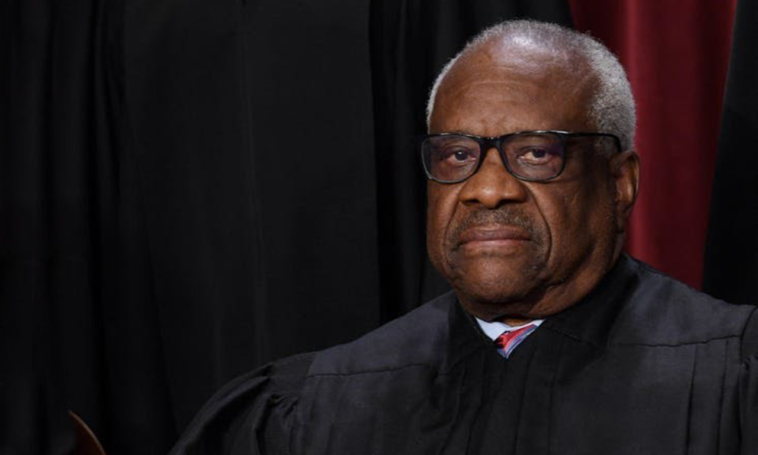Representative Jamie Raskin has brought attention to a critical aspect of Trump debate—Justice Clarence Thomas’s potential conflict of interest.
Raskin argues that “Thomas should recuse himself from any decision related to Trump’s eligibility due to the involvement of Thomas’s wife, Ginni Thomas, in what has been widely referred to as the “big lie.”
Ginni Thomas played a role in post-election discussions by sending numerous text messages to Mark Meadows, Trump’s former chief of staff, urging him to challenge the 2020 election results.
The revelations about Ginni Thomas’s active participation in promoting baseless claims about election fraud have raised questions about the impartiality of her husband, Justice Clarence Thomas, in potential rulings related to Trump’s candidacy.
This issue has taken on added significance as several states have already taken steps to remove Trump from their primary ballots. Citing the 14th Amendment, which bars individuals engaged in insurrection from holding office, states like Colorado and Maine argue that Trump’s alleged role in the Capitol attack disqualifies him.
The legal battles stemming from these decisions are expected to intensify, with Trump likely to appeal and similar efforts underway in other states, including Arizona, Nevada, Oregon, New Mexico, New York, and Texas.
The complexity of the situation is further underscored by the fact that officials in California and Michigan have rejected attempts to exclude Trump from their state ballots. This patchwork of state decisions sets the stage for a potential showdown in the U.S. Supreme Court, where the final determination of Trump’s eligibility is likely to be made.
In more straightforward terms, the fundamental question is whether Donald Trump, the former president, should be permitted to run for president again in 2024. The states are divided on this issue, with some deciding to keep him off the ballot, asserting that his actions after the 2020 election, particularly his alleged involvement in the Capitol attack, make him ineligible. Representative Jamie Raskin is bringing attention to the fact that Justice Clarence Thomas, who could play a crucial role in any Supreme Court decision on this matter, might face challenges in being impartial due to his wife’s involvement in promoting unfounded claims about the election.
As the legal battles unfold, this issue is becoming a focal point for the upcoming election. The decision ultimately rests with the Supreme Court, and the process might be prolonged, influencing the political landscape leading up to 2024. The involvement of individual justices, like Clarence Thomas, introduces an additional layer of complexity to an already heated and contentious debate.
The broader implications of this situation extend beyond Trump’s candidacy. It raises fundamental questions about the intersection of personal beliefs, legal interpretations, and the democratic process. The alleged conflicts of interest, especially at the level of the Supreme Court, bring into sharp focus the challenges of ensuring a fair and unbiased decision-making process in matters of national significance.
The clash between state decisions, legal interpretations of the 14th Amendment, and the potential involvement of individual justices in the Supreme Court showcases the intricate dance between federal and state jurisdictions in the United States.
The decentralized nature of the American political system allows states a considerable degree of autonomy, but it also sets the stage for divergent approaches and decisions on critical issues.






GIPHY App Key not set. Please check settings
2 Comments